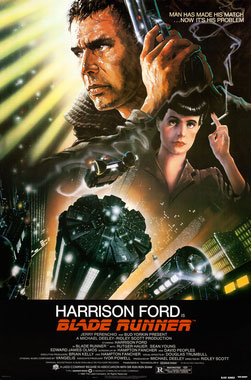Science Fiction: Much More Than Just Entertainment
This is an essay on science fiction, originally written in March for an assignment. Here is the original question:
Write a persuasive essay on the following question:
“Reading science fiction may be entertaining but otherwise it has little real value.” Do you agree?
I have spent a lot of time working on this essay, especially on the research. – And that’s why I decided to put it here. If you have any suggestions, please let me know.
This version has been modified by our tutor Ms Chin. Very much appreciated.
Science fiction, one of the most popular fiction genres, is an outlet where writers can unleash their fantasies about the future (Hornby, 2015). Some may argue that reading science fiction only offers entertainment and has hardly any real value; however, this is a misinterpretation. Reading science fiction is much more than just entertainment; it develops people’s interest in science, inspires people to create innovative technological products, and leads people to reflect on themselves philosophically.
Firstly, science fiction cultivates readers’ interest in science. Since it depicts the authors’ imagination regarding the future, its uniqueness lies in its ability to illustrate the enormity and complexity of the cosmos (Hornby, 2015; Liu, 2013). This adds attractiveness to science fiction, and enables it to not only entertain readers, but also inspire them to discover more about science. Celebrated science fiction writers Isaac Asimov and Liu Cixin, for instance, are science enthusiasts who developed their interest under the influence of science fiction (Leslie, 2020; Liu, 2013). Another example is Robert Goddard, the pioneer of modern rocketry, whose imagination was boosted by War of the Worlds, H. G. Wells’ science fiction novel (Lehman & Lehman, 2019). To many, science fiction is not just about entertaining; it plays a significant role in triggering their interest in science.

Additionally, science fiction provides ideas for technological innovation. Because of its futuristic theme, imaginative inventions can often be found as an essential element. A notable number of these concepts have been captured by innovators, who have managed to make them come true. The submarine illustrated in Jules Verne’s science fiction classic, Twenty Thousand Leagues Under the Sea, is an example. It inspired Simon Lake, the establisher of submarine science, to build the first full-size submarine in the United States (Lake & Corey, 1938; Manchester, 1943). Another example is Jack Cover’s invention of the taser, an electroshock weapon originally depicted in the novel Tom Swift and His Electric Rifle by Victor Appleton (Weber, 2009). For brilliant innovators like Lake and Cover, reading science fiction is more than entertaining; it is the origin of their creativity, which leads them to the road of innovation. Therefore, science fiction not only entertains people, but stimulates technological innovations.

Many people think that science fiction centres on imagined scenarios and hence, are mere entertainment. In fact, science fiction educates readers to reflect on themselves philosophically. Science fiction works are not just written for entertainment; through imagination, authors share their visions of the undiscovered world and encourage philosophical discussion. For instance, Philip K. Dick’s work Do Androids Dream of Electric Sheep? overturns the common understanding of human minds, and encourages readers to ponder the real difference between humans and androids when the boundary between them becomes blurred (Schneider, 2016). Additionally, several George J. Annas’ works, like The Man on the Moon, are dedicated to motivating people to consider the potential threats of humans’ progress in genetic engineering (Schneider, 2016; Annas, 2000). These novels are examples of philosophical and thought-provoking science fiction works based on human nature. They can expand readers’ minds and inspire real changes through the authors’ philosophical questions about human nature. This goes far beyond the entertaining traits of science fiction.

In conclusion, reading science fiction is far more than just entertainment; it cultivates people’s fascination for science, promotes the development of technological innovation, and inspires people to meditate philosophically on themselves. When engrossed in the science fiction world, one can always find the great value of science fiction, and thus witness its marvellous influences in today’s era of science and technology.
References
- Annas, G. (2000). The Man on the Moon, Immortality, and Other Millennial Myths: The Prospects and Perils of Human Genetic Engineering. Emory Law Journal, 49(3), 753-782.
- Hornby, A. S. (2015). Oxford Advanced Learner’s Dictionary of Current English (9th ed.). Oxford: Oxford University Press.
- Lake, S., & Corey, H. (1938). Submarine: The Autobiography of Simon Lake as told to Herbert Corey. New York: D. Appleton-Century Company, Incorporated.
- Lehman, M., & Lehman, M. K. (1 October, 2019). Robert Goddard. (Encyclopædia Britannica, inc.)
- Leslie, D. (30 January, 2020). Isaac Asimov: centenary of the great explainer. Nature, 577, 614-616. doi:10.1038/d41586-020-00176-4
- Liu, C. X. (March, 2013). Beyond Narcissism: What Science Fiction Can Offer Literature. (H. Nahm, & G. Ascher, Trans.) Science Fiction Studies, 40(1), 22-32. doi:10.5621/sciefictstud.40.1.0022
- Manchester, H. (March, 1943). Simon Lake, Submarine Genius. Scientific American, 168(3), 120-131. doi:10.1038/scientificamerican0343-120
- Schneider, S. (2016). Thought Experiments: Science Fiction as a Window into Philosophical Puzzles. In S. Schneider, Science Fiction and Philosophy: From Time Travel to Superintelligence (2nd ed., pp. 1-16). Hoboken: John Wiley & Sons, Inc. doi:10.1002/9781118922590.ch0
- Weber, B. (16 February, 2009). Jack Cover, 88, Physicist Who Invented the Taser Stun Gun, Dies.